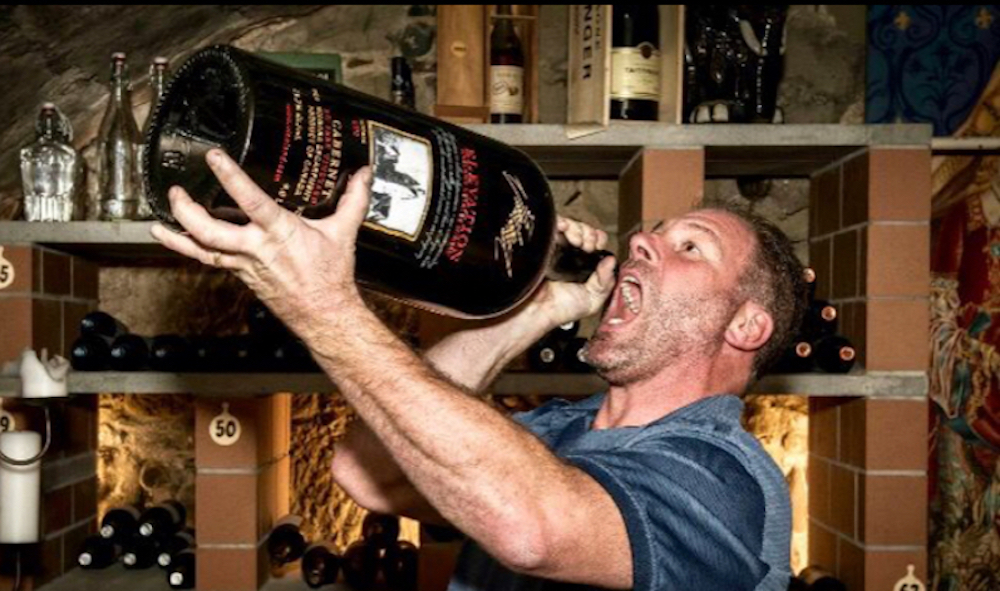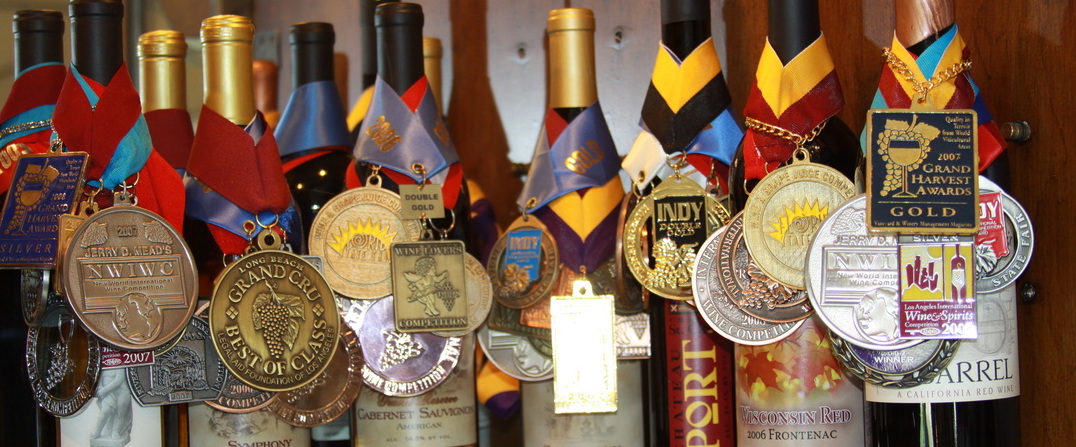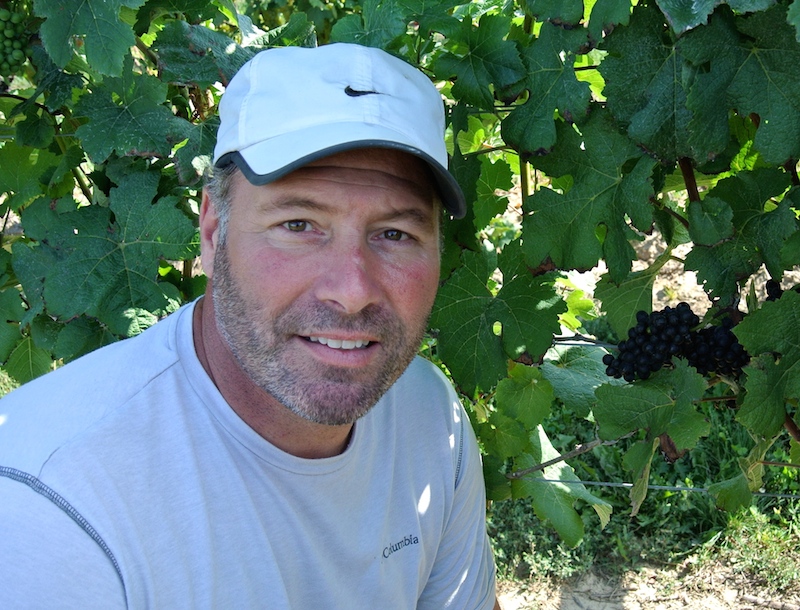
By Brian Schmidt
Some time ago I posted this statement on Twitter (or maybe it was Facebook): “When blessed with recognition or distinction one can choose a path of humility or arrogance. Choose wisely!!”
NOTE: This post has been updated to include more comments from Brian Schmidt
In that moment I was undoubtedly frustrated with yet another winery boasting about winning some award or another.
I have long held a belief that seeking adoration or third party affirmation in the form of awards breeds a form of dependence and in the worst case can be the enemy of creativity. We have all endured an insufferable marketing person reciting the many awards a wine has won … only to taste the wine and feel far less confident of the wine’s quality even though the (PLACE NAME HERE) County Fair deemed it a double gold.
Rely too heavily on third party affirmation and you will likely lack the confidence needed for long term success.
Live by the Award, Die by the Award

I have witnessed first-hand a winemaker studying the published results of a competition, seek out the winners and attempt to emulate the style of wines that received the highest honours. Did this winemaker forgo their creativity? Maybe, maybe not. You decide!
I have actively participated in judging where wines with elegance and finesse are passed over; bigger has all too often been deemed better. I argue, along with many others, that “less is more.”
Our singular task as grape growers and winemakers is to unveil the personality of a place (wine blended from several places still fits in this glove).
When seeking the subtle aromas and textures hidden in the corners of a glass of Austrian Gruner Veltliner, we rarely ask ‘did this wine win a medal?’ Instead we could conjure an image of many generations working steep slopes of loose stone bringing their place to your glass.

BIG wines do have their place. I love big wines. Who doesn’t love a Barolo with their rib eye?
My point is this (obvious faults aside): No wine is better than another. No winery is better than another. Each and every wine has a place and a purpose.
It is true; some wines will serve a purpose more noble than others. A wine may define moments in our life. A wine may define moments in history.
But for most of us the joy of wine is defined by two simple things — where we enjoyed it and with whom we enjoyed it with.
I have thoroughly enjoyed the “homemade” wine made by my Italian friend. He tells me his mother picked each berry from the stem by hand. His father turned the “mosto” every day for 10 days. He says: “I don’t add nothing.” This wine, made with the love of their family, will not win any competitions. However, it will be cherished with friends and family and that is the purpose of wine.
•••
Likely increasing the number of people that I tick off, I will add this.
I have found wine competitions to be an ugly opportunistic business playing on the vanity of winemakers and winery owners. There can be no denying that many competitions are structured to reward based on participation.. “How many wines did you enter?” is a proxy for: how much money you paid to participate (we pay to play).
It doesn’t take much digging to recognize that the level at which a winery is awarded is directly related to the number of wines submitted (I know this can be both causal and correlational) however, after MANY years of participating in the charade, I became completely disillusioned with the entire concept of awards. I have tremendous respect for somms and wine press that take the time to learn the stories behind the wine and the people and place that make the wine, however not so much when they align themselves with the ideals and results of a competition..
About Brian Schmidt

For over two decades, Vineland Estate vice-president and winemaker Brian Schmidt has faithfully served Vineland’s vineyards and cellars with a steady, far-sighted view to promoting complete integration, natural synergies and reduced intervention. This holistic approach has resulted in specific tiers of wines that continue to voice a clear expression of time and place. Schmidt maintains, “It is critical to understand the soil and site where your grapes are grown while developing a defined, yet flexible frame to react to the curve balls that Mother Nature likes to throw.”
Schmidt continues, “I do have an untamed passion for growing all cool climate varieties, but I must admit that I have a particular love for Riesling and Cabernet Franc.”
Schmidt was born in Kelowna, B.C. and was raised on a vineyard that had been in the family for three generations. The Schmidt family was one of the founding families of the Okanagan wine industry and this was the bedrock of Schmidt’s interest in winemaking. Schmidt has experimented, researched and has travelled extensively throughout Europe’s cool climate regions studying winemaking and the specific connections to the land. It is this intensive experience that has resulted in the creation of a winemaking style that has become Vineland Estates Winery’s signature.





It unfortunate that a majority of CASUAL wine drinkers do decide on what wine they purchase by “points” awarded or the medals a certain winery has won. When you visit most wineries they have the wine with the medals around them proudly on display. This would impress most entering the winery and give the impression that “this must be great stuff..the judges gave it a gold!”
Each competition seems to come out with different results…A wine that gets a platinum in one competition, barely gets a bronze in another.
Wine is so individual…but I guess its the age of marketing as the competition is fierce.
Kudos to this! I have been biting my tongue for years to not speak out about wine competitions. There is no consistency across competitions, particularly in North America, judging still mostly awards consumer friendly wines. The wines with character, complexity and uniqueness tend to be overlooked because they are too “different “. I’ve have judged and been behind the scenes for competition and the placement of a wine in a flight or time of day is everything.
I remember Brian bragging “we won it all” at Vinitaly in around 2005 or so. I didn’t even know there was a competition at the biggest wine show in the world. He apparently did. And he cared then. Whatever.
I share your frustration. The problem with the awards is like the problem with the 10-point wine ratings –and do not blame Robert Parker for that!! It’s probably a wide-spread failing in judging for ourselves, for our own taste: we are in the habit of turning to the internet, it is all too easy to gather a dozen reviews by who-knows-what marketing promotion and be reassured that at least you won’t make *gasp* an unfortunate choice, rather than thinking for yourself.
Hello Peter,
Indeed.. it was in. 2003 when we won the “top” award at Vinitaly… it was the first time a winery in North America had ever done so… and yes.. it was celebrated ..
since then, I have had time to reflect on and reconsider my thoughts .. I have in fact changed my opinion on many things since then.. as we are prone to do when we mature.. I have however NOT changed my mind on meat pies… they are still wrong .. I won’t ever reconsider that… however..
I used to spray herbicide on our vineyards to kill weeds.. I now know that is a bad idea so I’ve changed my mind and use mechanical means as much as is possible.
At one point I felt aging wine in New Oak barrels was also a good idea.. NOW… No thank you..
Do opinions have to be static.. or are we free to change our mind when presented with compelling reasons.